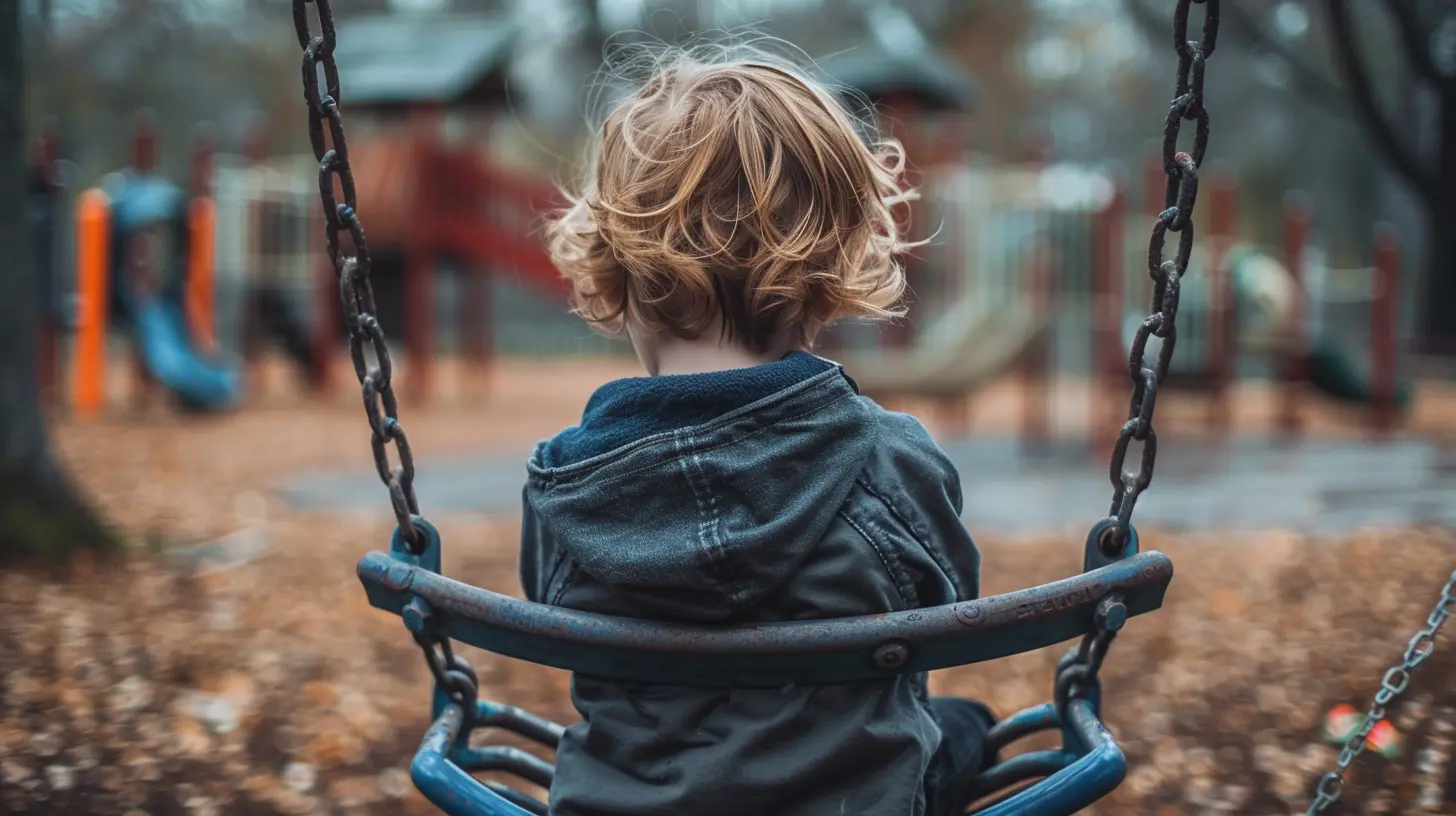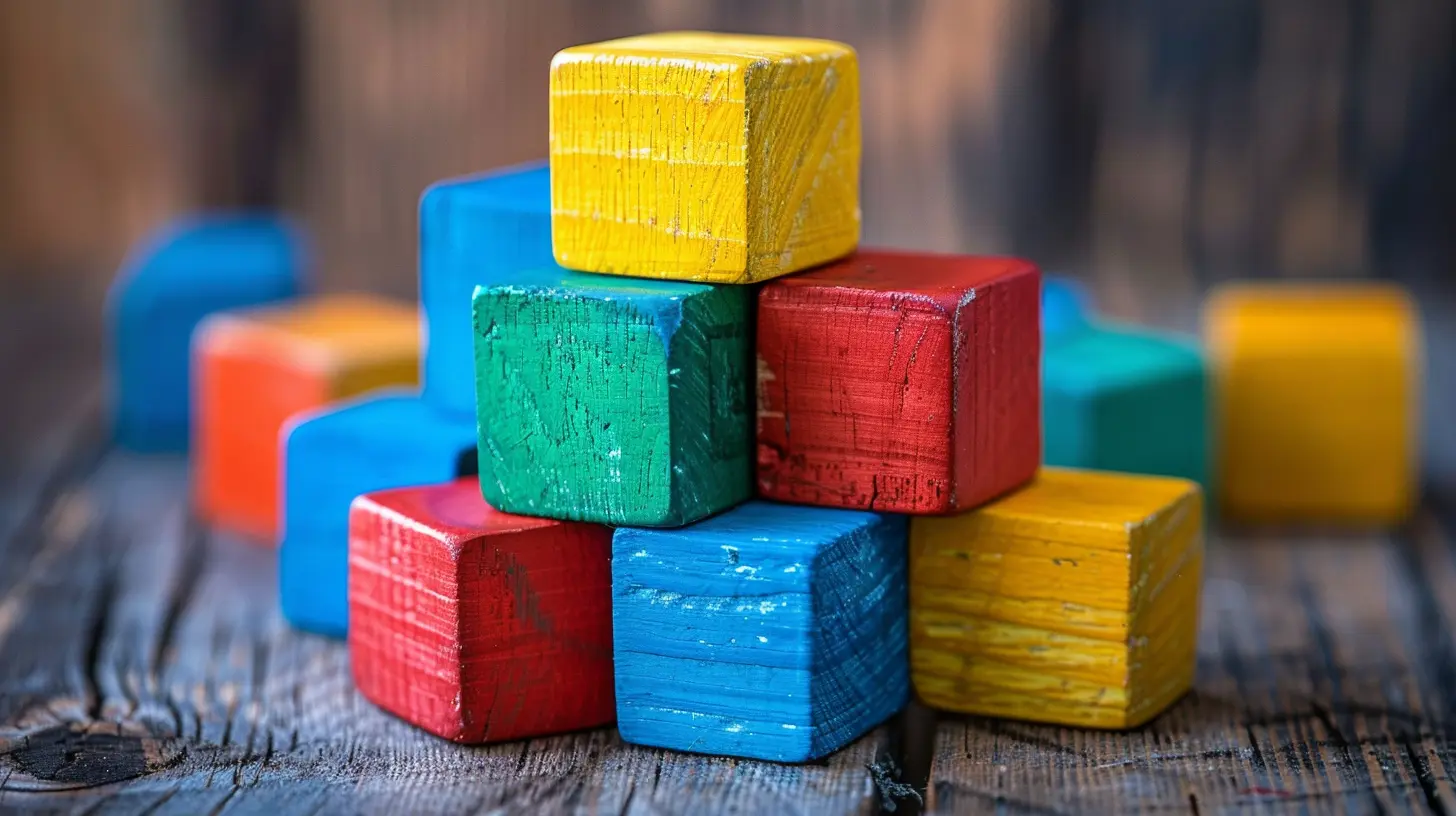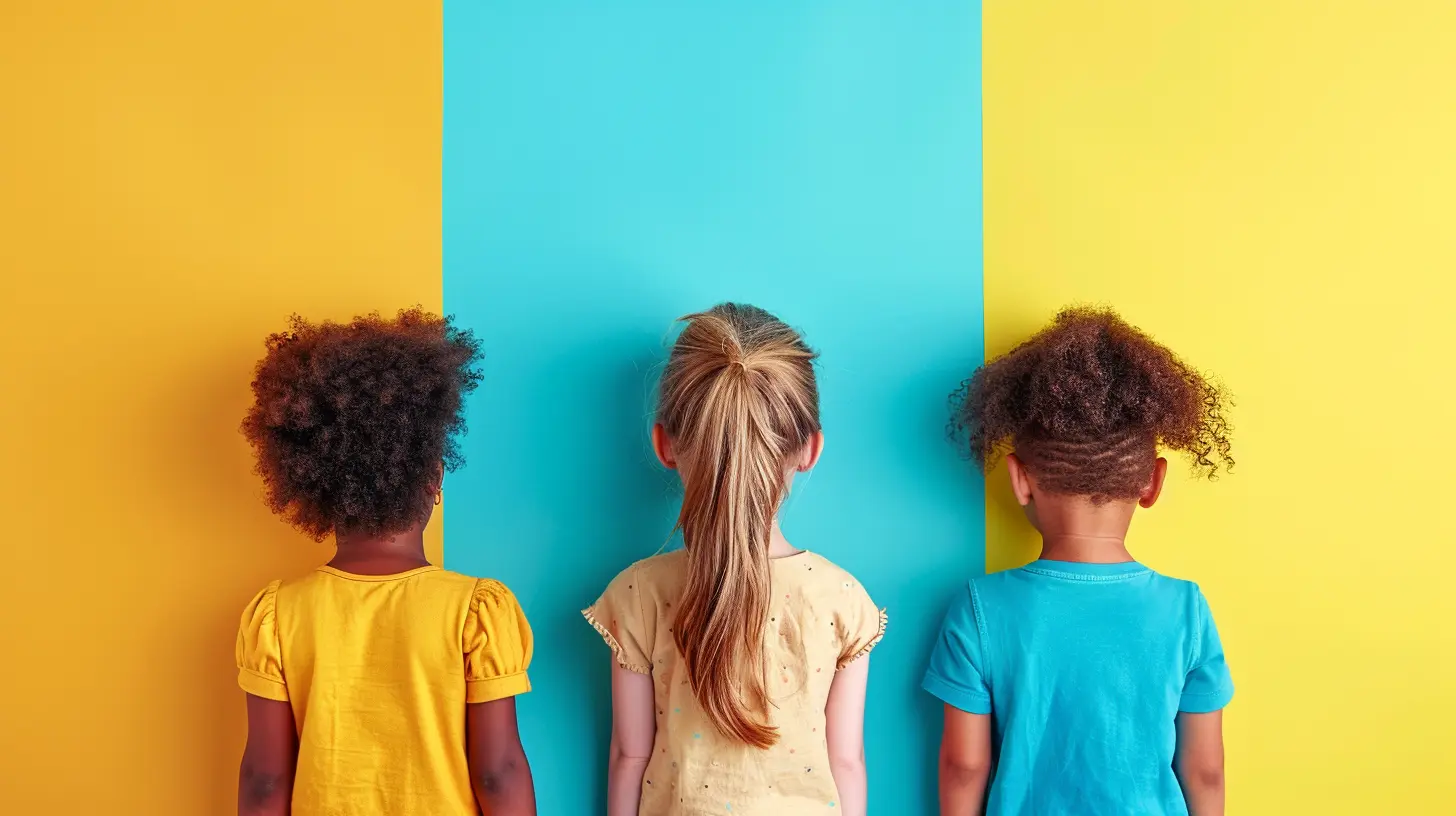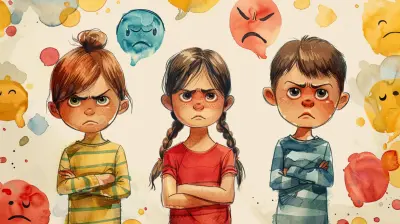How to Help Your Preschooler Build Social Skills
27 April 2025
Social skills are like a secret key that unlocks a world of friendships, emotional intelligence, and confidence for your preschooler. As parents, we instinctively want our little ones to thrive socially, but let’s be honest—some kids need a bit of extra guidance to develop these important skills.
The good news? You don’t need a Ph.D. in child psychology to help your preschooler become a social butterfly. With patience, encouragement, and a few intentional strategies, you can lay the foundation for a lifetime of healthy relationships.
In this article, we’ll dive into practical, hands-on ways to help your preschooler build essential social skills—without forcing it or making them feel pressured.

Why Are Social Skills Important for Preschoolers?
Before we jump in, let's talk about why social skills matter. Preschoolers are at a crucial stage of development where they’re learning how to interact with others, manage emotions, and navigate the complex world of friendships. Strong social skills can:- Boost self-confidence and independence
- Help with teamwork and cooperation
- Improve emotional regulation
- Reduce frustration and tantrums
- Lay the foundation for school readiness
Simply put, teaching your preschooler social skills now will benefit them throughout childhood and beyond. So, how can you help? Let’s get into it! 
1. Encourage Playdates and Group Activities
One of the best ways for kids to develop social skills? Simply spending time around other kids! Playdates, group activities, or preschool programs give little ones the chance to practice sharing, taking turns, resolving conflicts, and making friends.How to make it work:
- Start with small, one-on-one playdates if your child is shy.
- Supervise but don’t intervene too quickly—let them try to work things out on their own.
- Encourage structured activities like board games or simple crafts to help interaction feel natural.
Even if your child is more of an observer than a participant at first, they’re still learning by watching others interact. 
2. Teach Them the Art of Sharing and Taking Turns
Let’s face it—sharing doesn’t come naturally to most preschoolers. At this age, kids are still learning that the world doesn’t revolve around them. But that doesn’t mean they can’t be guided towards better habits.Ways to teach sharing:
- Use a timer: If two kids want the same toy, set a timer and let them take turns.
- Praise good behavior: When your child shares, reinforce it with a simple, “That was so kind of you to share!”
- Model sharing at home: Show them how it’s done by sharing snacks, household items, or even taking turns picking a family movie.
The more they practice, the more natural sharing will feel. 
3. Help Them Recognize and Express Emotions
Ever seen a preschooler meltdown because they didn’t get their way? (We’ve all been there!) A big part of social skills development is emotional regulation—understanding their own feelings and learning how to express them appropriately.How to support emotional growth:
- Label emotions: Instead of “Stop crying,” try, “I see you're feeling frustrated because your block tower fell.”
- Use books: Storybooks about emotions can help kids understand feelings in a relatable way.
- Teach coping skills: Practice deep breathing, hugging a stuffed animal, or using simple phrases like “Can I have a turn when you’re done?”
When kids can name their emotions, they’re better equipped to handle social situations without melting down.
4. Role-Play Social Scenarios
Learning how to navigate social interactions takes practice, and role-playing is a great way to help your child get comfortable with different situations.Try practicing:
- How to say hello: “If you meet a new friend, what can you say?”
- How to ask to play: “Let’s pretend you want to join a group already playing. What could you say?”
- How to handle conflict: “What if someone takes your toy? What could you do instead of yelling?”
Role-playing makes social interactions feel familiar and less intimidating when they happen in real life.
5. Model Positive Social Behavior
Kids are like little sponges—they absorb everything they see. If you want your preschooler to develop strong social skills, be mindful of the behavior you’re modeling.Simple ways to model good social skills:
- Greet people warmly and say “please” and “thank you.”
- Show kindness and patience in your own interactions.
- Talk about your own friendships and how you maintain them.
When your child sees you engaging positively with others, they’ll naturally start to mimic that behavior.
6. Introduce Basic Manners in a Fun Way
Manners might seem old-fashioned, but they’re the foundation of good social interactions. Teaching your preschooler simple phrases like “please,” “thank you,” and “excuse me” can go a long way in helping them make friends.Make it fun by:
- Turning it into a game (e.g., “Can you remember to say ‘please’ before I hand you the cookie?”).
- Praising good manners when you see them in action.
- Using storybooks or songs about manners to make learning engaging.
Kids respond well to positivity, so instead of scolding when they forget, celebrate when they remember!
7. Encourage Group Play and Teamwork
Teamwork isn’t just for sports—it’s an essential social skill that helps kids learn cooperation, patience, and problem-solving.How to foster teamwork:
- Set up mini scavenger hunts that require working together.
- Play simple board games that involve turn-taking.
- Encourage collaborative art projects where they have to share materials.
Group play teaches kids how to interact in a way that isn’t just about them—it’s about working towards something together.
8. Help Them Handle Rejection and Disappointment
Not every social interaction will go smoothly. Sometimes, your preschooler will be left out, ignored, or told “no”—and that’s okay! Learning to handle rejection is a big part of developing strong social skills.Support them by:
- Validating their feelings (“I know it hurts when someone doesn’t want to play”).
- Teaching resilience (“Maybe they weren’t in the mood to play today. Let’s find something fun to do instead!”).
- Reinforcing the idea that friendships take time and patience.
Helping your child handle setbacks in a healthy way ensures they don’t shy away from making new connections.
9. Limit Screen Time and Encourage Face-to-Face Interaction
Screens aren’t the enemy, but too much screen time can interfere with real-world social development. Kids learn best by interacting with real people, not digital characters.Tips for balancing screen time:
- Set limits and encourage hands-on playtime instead.
- Engage in activities that require communication, like family game nights.
- Opt for shows or apps that promote social skills rather than passive consumption.
The more opportunities your preschooler has for real-world interaction, the better equipped they’ll be for social success.
10. Be Patient and Celebrate Small Wins
Social skills don’t develop overnight. Some kids will dive into social interactions naturally, while others might need extra time and encouragement. And that’s perfectly okay!Remind yourself to:
- Be patient when progress feels slow.
- Celebrate even the smallest victories (“You said ‘thank you’ all by yourself today—that’s awesome!”).
- Keep socialization fun and low-pressure.
Over time, as your little one builds confidence and experience, they’ll develop the social skills they need to thrive.
Final Thoughts
Helping your preschooler build social skills is one of the most rewarding parts of parenting. It’s not about turning them into the most popular kid on the playground—it’s about equipping them with the tools to navigate friendships, emotions, and teamwork with confidence.By providing opportunities for interaction, modeling positive behavior, and encouraging patience and kindness, you’re setting your child up for success—not just in preschool, but for life.
So, the next time your little one struggles with sharing or gets nervous about making friends, remember: social skills take time to develop, and every small step forward is a win.
all images in this post were generated using AI tools
Category:
Parenting PreschoolersAuthor:

Max Shaffer
Discussion
rate this article
5 comments
Soleil McConkey
This article offers practical tips for parents. Encouraging playdates and teaching sharing can significantly enhance a preschooler's social skills. Simple, consistent interactions make a big difference in their development.
May 16, 2025 at 4:35 PM

Max Shaffer
Thank you for your insights! I completely agree—playdates and sharing are vital for preschoolers' social development.
Christina Carr
This article sparks my curiosity! I'm eager to learn more about fun, effective ways to encourage my preschooler to develop social skills. What specific activities or games have proven most successful in your experiences? I can't wait to try them out and watch my child thrive!
May 2, 2025 at 3:52 PM

Max Shaffer
Thank you for your enthusiasm! Activities like role-playing, group games, and storytelling are great for building social skills. Simple games like "Simon Says" and "Duck, Duck, Goose" can encourage cooperation and communication. Enjoy exploring these with your child!
Lindsey Malone
Building social skills in preschoolers is like herding cats—adorable but chaotic! Just remember, a well-timed snack can solve almost any playground drama. Who knew sharing goldfish crackers could be such a game-changer?
May 1, 2025 at 3:43 PM

Max Shaffer
Absolutely! Snacks can be a powerful tool for fostering sharing and connection among preschoolers. Thanks for the great insight!
Bellamy Estes
Great tips! Nurturing social skills now sets a strong foundation for lifelong friendships.
April 30, 2025 at 3:37 PM

Max Shaffer
Thank you! I'm glad you found the tips helpful. Building social skills early truly paves the way for lasting friendships!
London Ford
Encourage playdates, share snacks, and watch friendships bloom like flowers in spring!
April 30, 2025 at 3:11 AM

Max Shaffer
Absolutely! Playdates and shared snacks are fantastic ways for preschoolers to nurture friendships and develop essential social skills.




